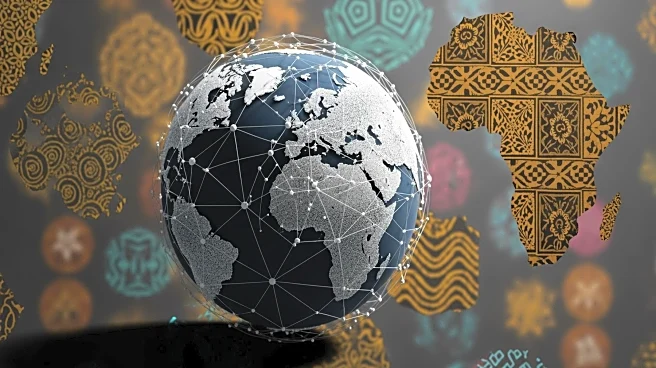What's Happening?
Tanzania recently experienced an internet blackout that resulted in a $238 million loss to its economy. The shutdown occurred just days before the country's general election, severely impacting productivity,
trade, and digital services. Mobile payments and online healthcare systems were disrupted, leading to widespread criticism from analysts and civil rights groups. The Paradigm Initiative, a digital rights organization, condemned the action as economically devastating and a violation of rights. The shutdown is seen as part of a growing trend of election-season internet controls in Africa. The Net Rights Coalition and the African Commission on Human and Peoples’ Rights have called for an end to such practices, citing violations of freedom of expression and the right to development.
Why It's Important?
The internet shutdown in Tanzania highlights the significant economic and social consequences of restricting digital access. Connectivity is crucial for modern economies, and disruptions can lead to loss of trust, reduced investment, and hindered human potential. The shutdown not only affects Tanzania but also raises concerns across Africa, where similar actions have occurred in countries like Ethiopia, Sudan, and Uganda. These events spark debate about the continent's digital future and the balance between government control and citizens' rights. The economic impact, as assessed by the NetBlocks COST model, underscores the importance of maintaining open and reliable internet access for development and growth.
What's Next?
The long-term consequences of internet shutdowns in Tanzania and other African nations could include decreased foreign investment and slowed economic growth. Civil society groups and international organizations may increase pressure on governments to uphold digital rights and prevent future shutdowns. The ongoing debate about internet governance in Africa could lead to policy changes aimed at protecting digital access during critical periods like elections. Stakeholders, including businesses and human rights organizations, are likely to advocate for stronger protections against arbitrary internet restrictions.
Beyond the Headlines
The ethical implications of internet shutdowns extend beyond economic losses, touching on issues of freedom of expression and human rights. These actions can silence dissent and limit citizens' ability to participate in democratic processes. The cultural impact includes a potential shift in how African societies view government control over digital spaces. Long-term, these shutdowns could influence global perceptions of Africa's commitment to digital innovation and human rights.










